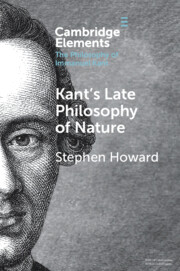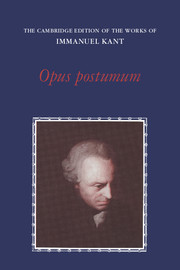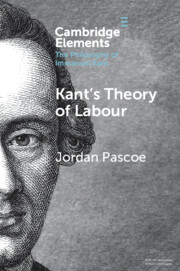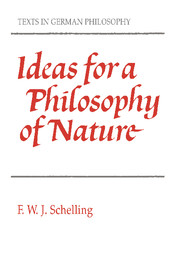Kant's Late Philosophy of Nature
Kant's final drafts, known as his Opus postumum, attempt to make what he calls a 'transition from the metaphysical foundations of natural science to physics.' Interpreters broadly agree that in this project Kant seeks to connect the general a priori principles of natural science, as set out in the major critical works, to the specific results of empirical physics. Beyond this, however, basic interpretative issues remain controversial. This Element outlines a framework that aims to combine the systematic ambition of early twentieth-century readings with the rigor of more recent studies. The author argues that a question that has animated much recent scholarship – which 'gap' in Kant's previous philosophy does the Opus postumum seek to fill? – can be profitably set aside. In its place, renewed attention should be given to a crucial part of the manuscript, fascicles X/XI, and to the problematic 'arrival point' of the transition, namely, Kant's question: What is physics?
Product details
March 2023Adobe eBook Reader
9781009033503
0 pages
This ISBN is for an eBook version which is distributed on our behalf by a third party.
Table of Contents
- 1. Introduction
- 2. A Sketch of the Reception History
- 3. 'Gap' or Transition Problem?
- 4. The Form of the Transition Problem
- 5. What is Physics?
- 6. Conclusion
- Appendix: How to Read the Opus postumum
- References.





